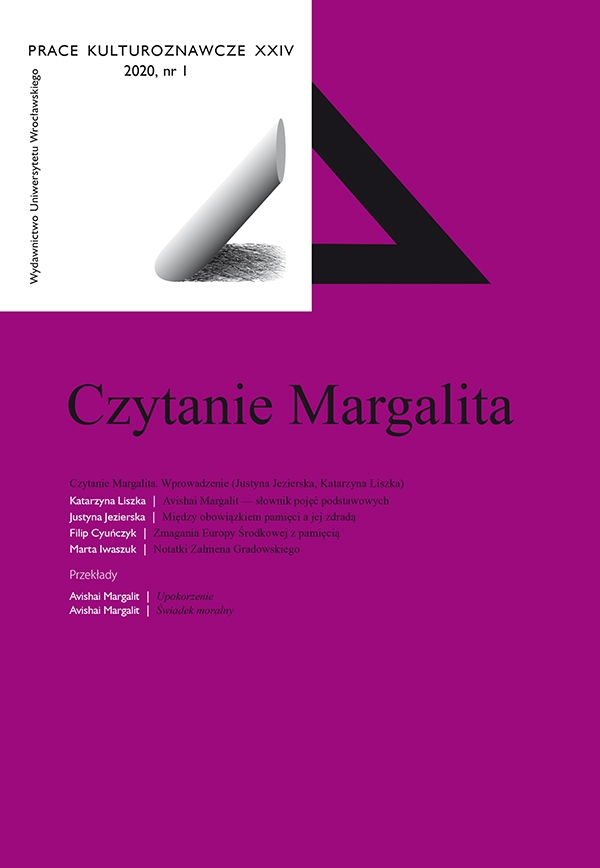

Articles

The aim of this article is to present the key notions developed by Avishai Margalit, a seminal Israeli thinker. There is a very clear need for a propaedeutic characterisation as Margalit’s works have to date been treated only selectively and fragmentarily in a variety of disciplines, including political thought, law, ethics, memory studies, and Shoah studies. There is as of yet not a single monograph on Margalit’s thought that provides a systematic interpretation of his entire body of work. The thesis of this article is that the most important assumption framing Margalit’s moral and socio-political thought is his distinction between ethics and morality. The article develops this argument by demonstrating how such notions as the decent society, humiliation, the ethics and morality of memory, moral witnesses, rotten compromises, and betrayal are in fact interconnected. Apart from the content of Margalit’s oeuvre, the article deals with questions of methodology, referring to Wittgenstein’s notion of the picture, the philosophy of example, and the critique of idolatry/ideology. The set of central notions described in the article reveals the coherence and complexity of Margalit’s philosophical thinking across his works.